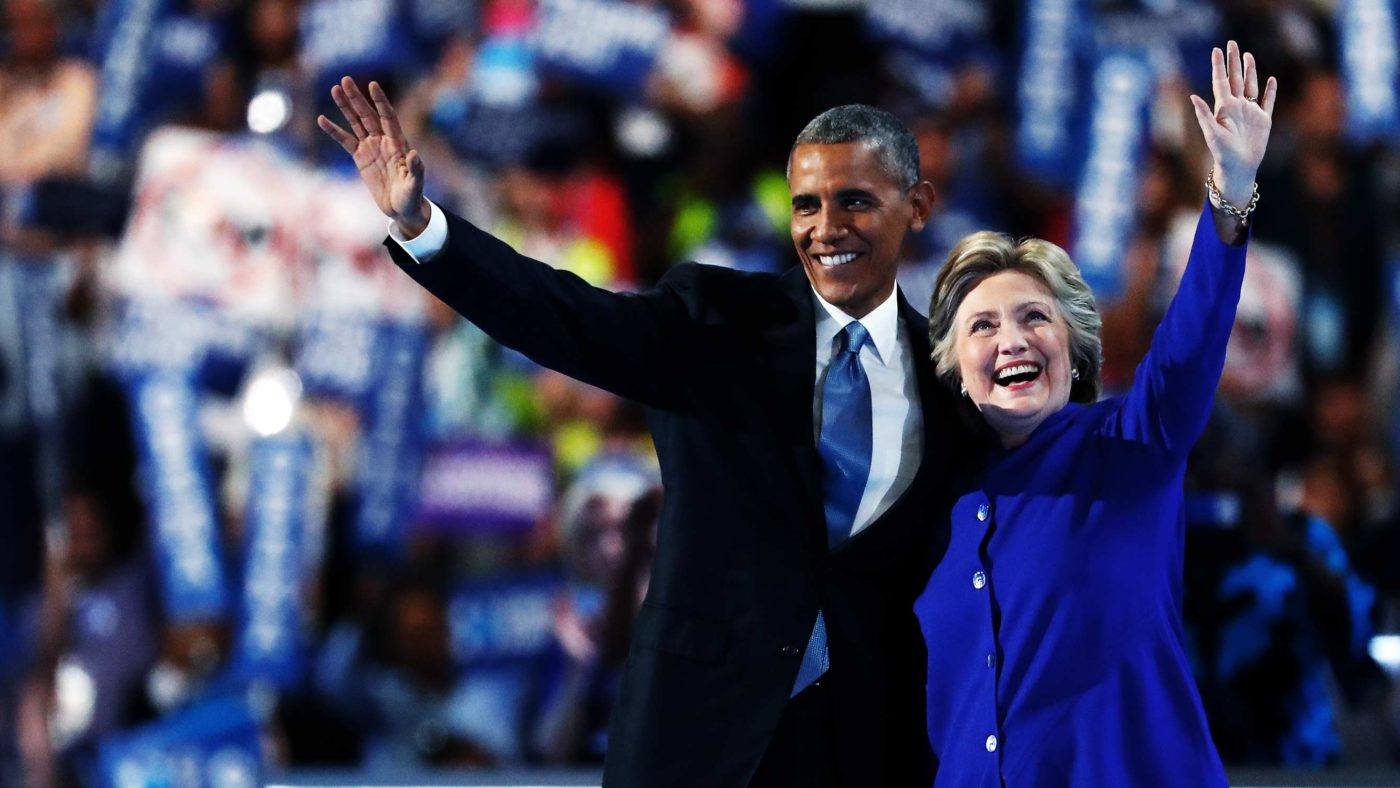It is said that Hillary Clinton is the one Democrat capable of handing over the White House to Donald Trump. If, as many are now starting to predict, Trump defeats Clinton in November, it could well be Clinton’s loss rather than Trump’s victory.
In presidential campaigns, policies and CVs always come secondary to personal vision. It has long been necessary for pretenders to craft a narrative, a President’s Progress that interweaves their past struggles with their hopes for America’s future; something which Obama excelled. What is unique about this election is that both candidates, albeit for different reasons, have refused to indulge in this confessional circus; the mix of biography, faith and empathy which usually gives flavour to Presidential elections. Donald Trump has ripped up the rulebook of political campaigning; Hillary on the other hand has persistently tried to follow the old ways and so far has failed.
Hillary Clinton is a politician of many faces but with an undeniable image problem. As Obama so effectively characterized her in 2008: ‘she’ll say anything; she’ll change nothing.’ Over the years we’ve had progressive Hillary, hawkish Hillary, Hillary the retro-feminist, the suffering wife, the devoted grandmother all projected with varying degrees of success. For the woman who has been at the top of US politics since the mid-1980s, different times have undoubtedly called for different roles but why is it that we seem to know less about her now than twenty years ago when she became First Lady?
In part this is because Hillary has allowed her enemies to define her. She is the bête noire of the conservative movement – the imaginary love-child of Gore Vidal and Jane Fonda – no other liberal comes close. The scenes at the Republican National Convention were telling; hatred for Hillary provided the only real snippets of solidarity. Conservatives should thank her. Over the years the Clintons have given shape and focus to America’s culture war in a similar way that Margaret Thatcher did in the UK.
Yet even conservatives are not sure which Hillary to target. Back in the spring, Ted Cruz’s team produced a video of a lookalike Hillary Clinton dressed as a female Mafioso, suited and in dark glasses egging on her heavies as they smash up a computer hard-drive with a baseball bat. It denoted a change of tact in the wake of the Benghazi email scandal. Clinton as the disruptive liberal determined to destroy the fabric of American life still has currency, but Republicans know that a much more compelling narrative especially in these times is to portray Clinton as the liar and embodiment of all that is wrong with the over-privileged, out of touch Washington elite.
Clinton suffers from much the same problem as Richard Nixon, another frustrated pretender in waiting. What they achieved in terms of experience they lack in compassion, empathy and warmth. But Nixon was a man and on the right; Clinton has the additional problem of being a woman on the left. Hillary’s awkward encounters with the public, her unemotional speeches on the podium give the impression of a woman who feels lost outside the District of Columbia, whose politics is essentially paternalistic and out of sync with the liberationist tendencies of the Information age. Her mask slipped at the Select Committee hearing on Bengharzi where her ‘chippy’ performance reinforced right-wing conspiracies that she only obeys her own rules and left-wing conspiracies that she is unfairly hounded. Hillary is not matriarchal but regal. She oozes a sense of entitlement and an unwillingness to connect or be held to account.
She unfortunately lacks what her husband had in spades and what we saw on display this week: personable qualities combined with a vulnerability, which made him (for a time, at least) politically unassailable. Hillary will have no ‘town called Hope’ moment; the Clinton backstory has been raked over so extensively by herself and her enemies that it now seems tired and contrived.
Clinton particularly struggles when it comes to expressing her religious faith. America may be becoming more secular, but a female US president is still more likely than an atheistic one. The problem with Clinton is that this is precisely how she is perceived. Any mention of her Methodist faith falls on deaf ears on the left and lambasted as opportunism by those on the right. Hillary has said that such talk does not ‘come naturally’ to her; a fact she famously proved in an awkward performance on CNN’s ‘Compassion Faith Forum’ for the Democrat nominees back in the 2008 campaign. Where Barack Obama was subtle and sincere, Clinton was vague and self-conscious. ‘As with everything Mrs. Clinton does’, remarked Christopher Hitchens, ‘you can see the machine wheels turning inside her head as she makes her manouvers’.
When Michelle Obama endorsed Hillary Clinton at the Democratic Convention she also gave her a lesson in how to speak to the American people, evoking the personal with the political with a brief revival of the Obama ‘politics of hope’. If America is to fall for Hillary, the onus is on Hillary herself. For the woman who struggles to look the public in the eye, it may be time to take a long look in the mirror.


